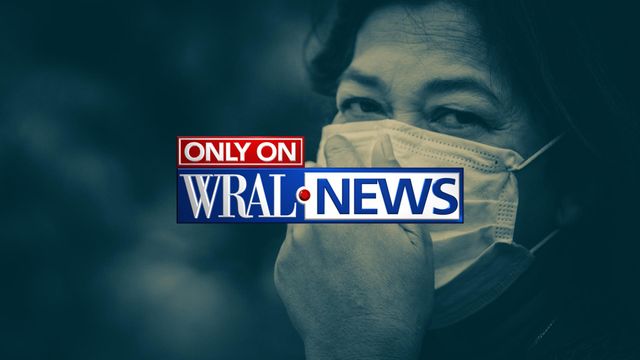COVID-19 recovery can take months for many patients
Public health guidelines say most people are "recovered" from COVID-19 within four weeks. But researchers and patients are learning that, for many, symptoms can drag on for months, and we don't yet know the long-term effects of the virus.
Posted — Updated"It was so early in our process, it wasn’t in our frame of everyday thinking," Wood said.
But when breathing problems sent him to the emergency room on March 25, Wood found out he had the coronavirus.
According to state and federal public health guidelines, people who get the virus and survive it without being admitted to the hospital are considered to be "recovered" two weeks after their positive test or the beginning of their symptoms. Those who have to be hospitalized with the virus are classified as recovered in four weeks.
By that guideline, Wood would have been considered "recovered" by the second week of April. But his symptoms dragged on for months after that.
"The shortness of breath and lung pain were the ones that scared me the most, because when you try to take a breath in and it catches and it doesn’t come right back out, and it kind of rattled, almost like a pneumonia rattle – those were the scary times," Wood recalled.
He’s still dealing with lung pain, shortness of breath and a shallow cough that comes out of nowhere. He used to be a high school sports official, but these days, even an easy hike is exhausting.
"COVID is the gift that keeps on giving," he said, "and it’s apparently not done with me yet."
New research shows lingering effects are common for COVID-19 survivors, even those like Wood who were not hospitalized. Two European studies have found more than half of people sickened by the virus still had persistent symptoms more than three months after they were considered to be recovered.
Cameron Wolfe, a professor of infectious diseases at Duke University, says it's important to understand that the term "recovery" in this context has a specific clinical meaning.
According to Wolfe, it's a question of "When do we think it’s safe for people to no longer be likely to be infectious to those around them."
"That’s quite different for many people than when your symptoms resolve," he added.
Wolfe says about four out of five people exposed to the virus never get sick enough to notice. But many of those who do develop COVID-19 pneumonia, which causes lung injury. It's not clear how long it may take to heal.
"We’ve not had people who’ve recovered for long enough for us to assess the long-term damage that this may cause to their lung," Wolfe said. "But I do fear there’s this sort of groundswell of people who had the most severe end of this illness that will be left with lingering symptoms that we don’t yet appreciate."
It’s not just the lungs, either. Scientists say the virus is known to affect heart rhythms and the nervous system.
RTI epidemiologist Dr. Pia MacDonald, who also teaches at University of North Carolina at Chapel Hill, says even if people don’t get sick from the virus at first, scientists don’t yet know whether it might cause problems later, in the same way that the chickenpox virus causes shingles later in life.
"The public has to understand: You do not want this, even if you get it in a mild way," MacDonald said, "because we actually don’t know what this means in the long term for someone."
Wood lives with that uncertainty every day. He can’t believe it when people say they’re not worried about getting the virus.
"I want to give [them] a good old southern 'Bless your heart,'" Wood said.
He said he hopes his story will help other people understand why it’s so important to wear a face covering and keep your distance, no matter who’s around.
"There are people like me who may not look high risk," Wood said, "that may not look like as if COVID would hurt me. It did. I wouldn’t wish that on anybody."
Related Topics
• Credits
Copyright 2024 by Capitol Broadcasting Company. All rights reserved. This material may not be published, broadcast, rewritten or redistributed.






